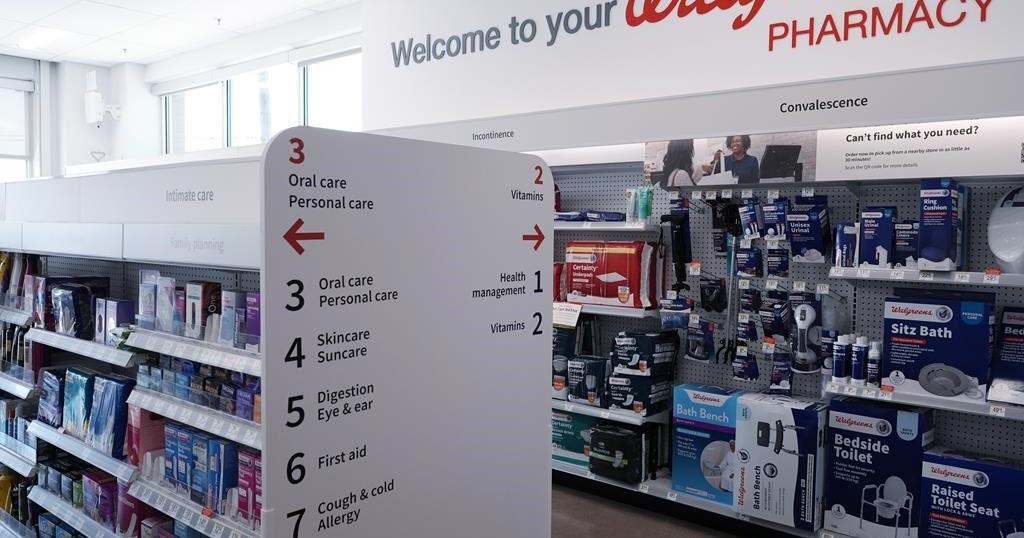America’s drugstores are testing smaller locations and more ways to offer care as price-sensitive shoppers look elsewhere.
Customers may see Walgreens stores that are one-fourth the size of a regular location or CVS drugstores with entire primary clinics stuffed inside. If these experiments succeed, the new stores might improve access to care and create a more lasting connection with customers, analysts say.
“Everyone looks at health care and says, ‘Oh yeah, it’s a market that’s ripe for disruption,’” said Neil Saunders, managing director of consulting and data analysis firm GlobalData. “But it isn’t easy to disrupt.”
Walgreens CEO Tim Wentworth said recently that his company could close a “significant portion” of underperforming stores in the next few years. CVS Health is going through a round of closings. Rite Aid has filed for bankruptcy. Thousands of independent drugstores have closed over the past five years.
The closures can leave gaps: An Associated Press analysis published in June found that urban neighborhoods that are majority Black and Latino have fewer pharmacies per capita than white majority neighborhoods.
There are still more than 30,000 drugstores scattered around the country, but even Walgreens executives admit that the market is overbuilt.
The stores have struggled with increased competition from Amazon and lower-price options like Walmart or Dollar Tree. They’re also dealing with theft, growing costs and thinner prescription reimbursement.
Some are responding with new looks. Walgreens is testing a store in Chicago that has digital kiosks where customers place orders. A separate desk offers pickup of items ordered at the kiosks or online.
The company also has opened about 100 mini drugstores focused on health and wellness and featuring store-brand merchandise. Walgreens started testing these stores in 2019 and plans to add more this year.
Walgreens spokesman Jim Cohn said shopper preferences are shifting, and the company aims “to meet them where, when and how they want to shop.”
Saunders notes these stores are less expensive to run and allow the company to serve areas without enough people to support a bigger store.
At one of these locations in Indianapolis, only four short aisles separate the front door and the pharmacy counter in the back. Healthy snacks, vitamins, first aid supplies, and the usual mix of antacids and Advil fill its shelves.
But there are no magazines and only small selections of greeting cards and beauty products at the store, which is closed on Sundays and sits about a half mile from a vacant Walgreens.
Customer Leonard King has visited several times. He says his prescriptions are ready on time, and the store seems to have decent supplies.
“Being a diabetic, sometimes medicines are hard to get,” the 67-year-old Indianapolis resident said.
But King also said he misses being able to shop for things like toiletry items that can be found at bigger stores.
The selection of retail items also is smaller at some CVS Health stores that include Oak Street Health primary care clinics. The company plans to open about 25 of these combinations this year and 11 more next year, with either full-sized or smaller clinics n the stores.
The clinics can have primary care doctors, social workers and people to help with insurance coverage. They specialize in treating patients with Medicare Advantage plans, which are privately run versions of the government’s coverage program mostly for people age 65 and older.
CVS Health says it is putting the clinics in areas that need primary care. It is targeting big cities like Chicago, New York and Dallas with its initial rollout.
“If we can invest more upfront for the patients who need it, by increasing access, improving quality of care, we can keep patients healthier,” company executive Mike Pykosz said.
Making things easier for patients helps build relationships between store staff and customers and can lead to repeat business, noted Arielle Trzcinski, a principal analyst at Forrester who covers health care.
Independent drugstores also have been polishing their health care reputations. They are expanding immunizations and testing, spurred partly by increased business they saw during the COVID-19 pandemic, said Kurt Proctor of the National Community Pharmacists Association.
Some also are adding doctor’s offices or specializing in diabetes care. Proctor said they are doing what they have always done: adapting to community needs.
“There are 19,000 (independent) stores across the country and no two of them are exactly alike,” he said.
Diving into health care isn’t new for drugstores. They started adding small clinics more than 20 years ago. CVS Health has been on a health kick since it quit selling tobacco in 2014.
As many as a quarter of drugstores could eventually wind up with big health clinics, especially those located in densely populated areas, said Jeff Jonas, a portfolio manager at Gabelli Funds who follows the industry.
But he cautioned that the idea is still unproven.
Walgreens has closed VillageMD primary care clinics just a few years after it launched plans to add hundreds to its stores. Analysts say companies are still learning what makes money and resonates with customers.
One thing they know for certain: Drugstores are no longer “America’s convenience destination” like they used to be, Saunders said.
“That really, over the past 10 to 15 years, has unwound,” he said.
___
The Associated Press Health and Science Department receives support from the Howard Hughes Medical Institute’s Science and Educational Media Group. The AP is solely responsible for all content.
